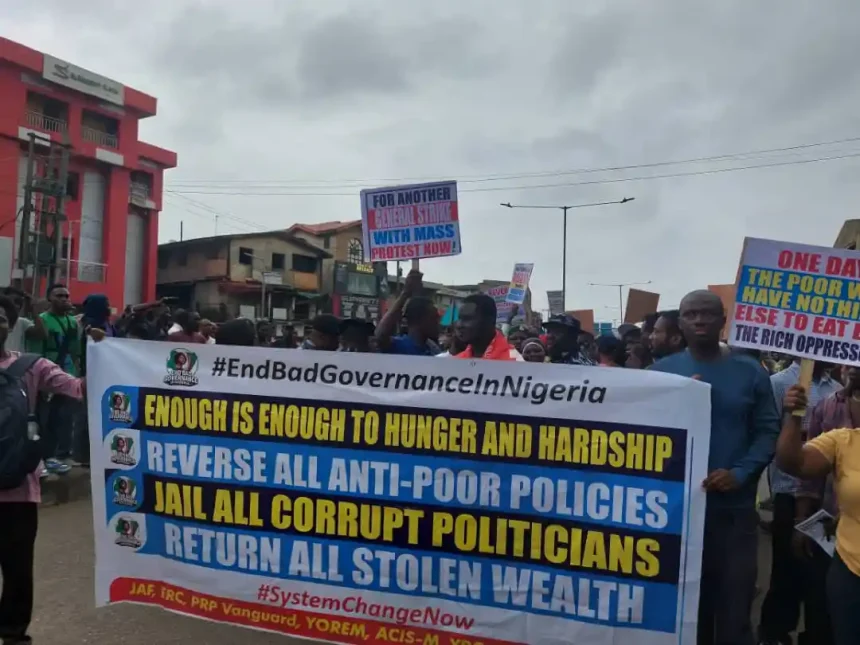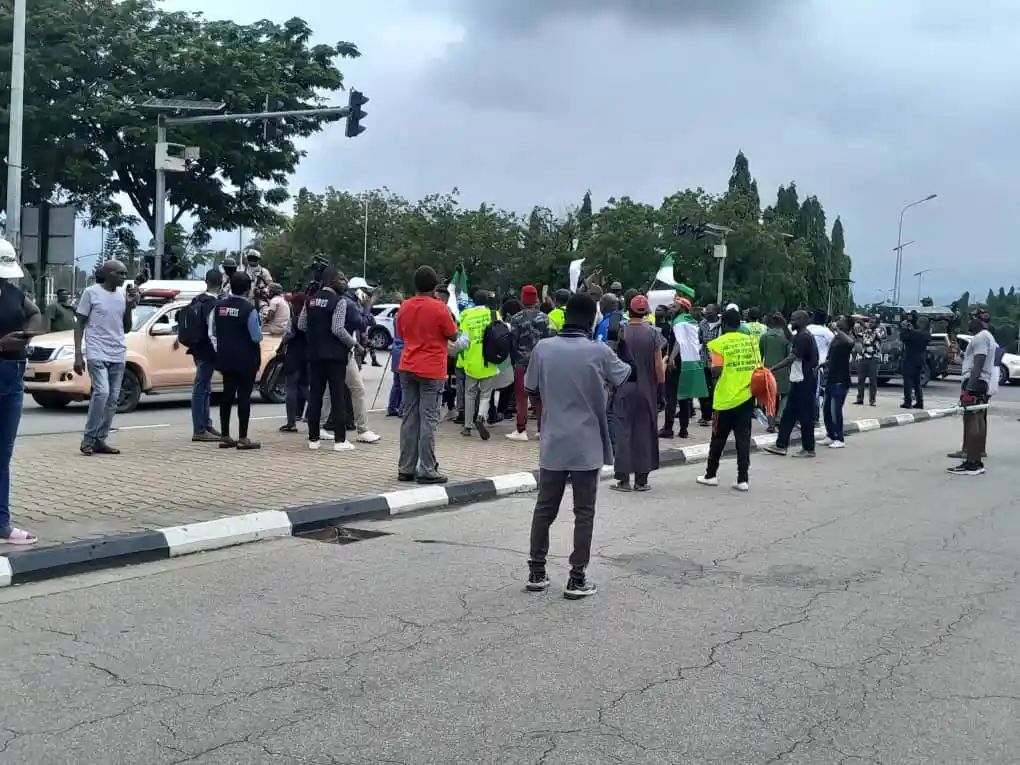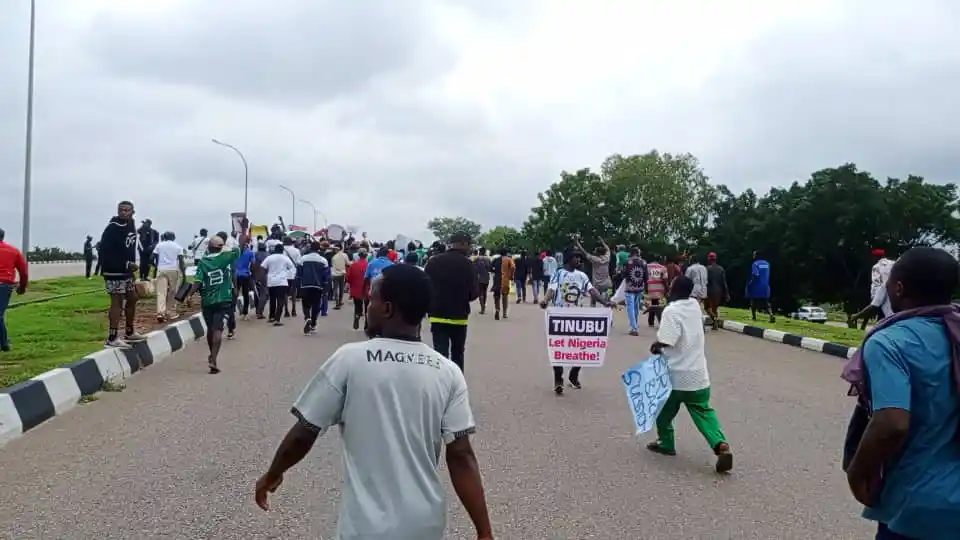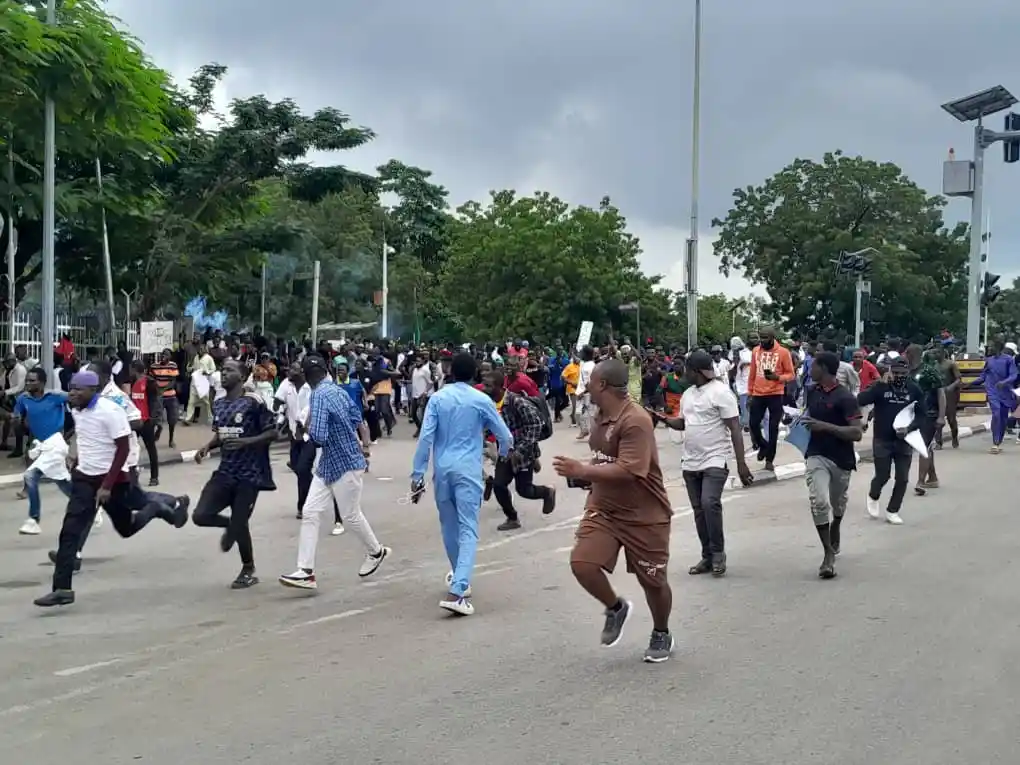Demonstrators express frustration with government reforms, alleging that these changes have led to soaring inflation and a weakened currency.
Nigerian security forces have heightened measures in Lagos and Abuja as nationwide protests against the rising cost of living commence, anticipated to last for 10 days.
The country, grappling with soaring inflation and a significantly devalued naira, is reacting to economic reforms introduced by President Bola Ahmed Tinubu a year ago.
The protest movement, dubbed #EndbadGovernanceinNigeria, has gained traction through online campaigns, resonating with Nigerians facing food inflation at 40% and fuel prices that have tripled since the reforms.
On Thursday, reports indicated that police deployed tear gas to disperse crowds in Abuja, while in Kano, protesters attempted to ignite bonfires outside the governor’s office, prompting a similar police response. Security forces have blocked access to Abuja’s Eagle Square, a key protest site, and in Lagos, police and soldiers are stationed at strategic locations, including the Lekki toll gate, notorious for the violent protests against police brutality in 2020.
“Duty is very clear: to ensure that the protest is peaceful, devoid of violence, devoid of the horrific things that happened during the rising in 2020,” stated Adegoke Fayoade, the police commissioner in Lagos, in an interview with Al Jazeera.
To alleviate economic hardships, the government announced measures on Wednesday, including the distribution of grain to states and aid for the most vulnerable populations. However, many Nigerians are stockpiling food and essentials in anticipation of possible violence during the protests.
“The police are brutalising the Nigerian people and people want that to stop,” activist Ismail Olushola Oladare, who participated in the 2020 protests, told Al Jazeera. “Today, this particular protest and bad governance protest is about the standard of living of people,” he added.
A loose coalition of civil society groups leading the protests has vowed to continue their demonstrations despite facing legal challenges that seek to restrict their rallies to public parks. Omolola Pedro, a protest organizer, emphasized that the rallies aim to signal to the government that Nigerians are fed up with the “abuse of human rights” and the unstable economic situation stemming from current policies.
The organizers have outlined 19 demands, with the removal of a state subsidy on petroleum products at the forefront of their concerns.
These protests follow a wave of unrest and anti-government demonstrations in Kenya, where President William Ruto was compelled to retract proposed tax hikes. In Uganda, police have detained numerous individuals participating in banned anti-corruption protests inspired by the rallies in Kenya.
“Some groups of people, self-appointed crusaders and influencers, have been strategising and mobilising potential protesters to unleash terror in the land under the guise of replicating the recent Kenya protests,” remarked Kayode Egbetokun, Nigeria’s inspector general of police. “We will, therefore, not sit back and fold our arms to watch violent activities unleash violence on our peaceful communities or destroy any of our national critical infrastructure and assets again,” he concluded after a meeting with senior officers in Abuja.
Story by: Cindy Selasi Humade | univers.ug.edu.gh
Below are pictures of events currently happening in parts of Nigeria








